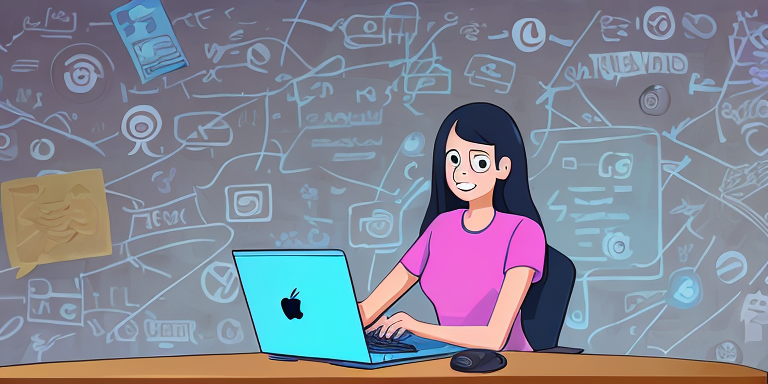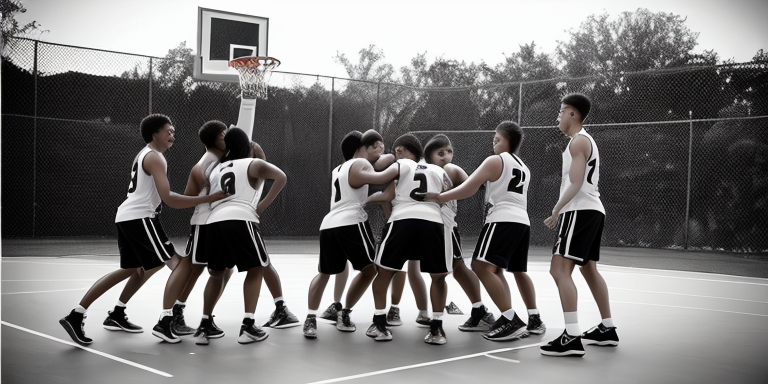The Social Media Dilemma: Balancing Mental Health and Academic Performance
Social media has become an integral part of students’ lives. From scrolling through Instagram to checking Snapchat streaks, social media platforms have become the go-to source of entertainment and communication for students. While social media has its benefits, it also has its downsides, especially when it comes to students’ mental health and academic performance.
The impact of social media on students’ mental health is a growing concern. Social media addiction has been linked to increased anxiety and depression among students. The constant need to check notifications and keep up with the latest trends can cause students to feel overwhelmed and stressed. Additionally, social media can create unrealistic expectations, leading to feelings of inadequacy and low self-esteem.
Social media also negatively affects students’ academic performance. Studies have shown a correlation between social media usage and poor academic performance. The constant distractions from notifications and the temptation to check social media during class can lead to a lack of focus and decreased productivity. Furthermore, social media can create unrealistic expectations about academic success, leading to a lack of motivation and engagement in the classroom.
Another issue that arises from social media is cyberbullying. With the rise of social media, cyberbullying has become a prevalent issue among students. Cyberbullying can have a severe impact on students’ mental health, leading to anxiety, depression, and even suicide. It is essential for parents, teachers, and schools to take proactive measures to tackle cyberbullying and create a safe and supportive environment for students.
Despite the negative effects of social media, there are ways to use it in a healthy and productive way. Students can limit their social media usage, take regular breaks, and proactively connect with friends and family in person. By using social media in a healthy way, students can balance their mental health and academic performance.
In conclusion, it is crucial to pay attention to the impact of social media on students’ mental health and academic performance. By understanding the negative effects of social media and taking proactive measures to use it in a healthy way, students can create a balanced and fulfilling life both online and offline.
The Negative Effects of Social Media on Mental Health
Social media has become an integral part of students’ lives, and while it has its benefits, it also has negative effects on mental health. Social media addiction has become a growing concern, with students spending hours scrolling through their feeds. This addiction can lead to increased anxiety and depression, as students compare themselves to others and feel pressure to present a perfect image online.
Studies have shown that social media usage is linked to increased levels of anxiety and depression. The constant need for validation and the fear of missing out can cause students to feel stressed and overwhelmed. Social media can also be a breeding ground for negativity, with cyberbullying and hate speech prevalent on many platforms.
To combat the negative effects of social media on mental health, it is important for students to take regular breaks from social media. This can include setting aside designated times to check their accounts and limiting overall usage. Students should also be encouraged to proactively connect with friends and family in person, rather than relying solely on social media for social interaction.
In addition to taking breaks, students should also be mindful of the content they consume on social media. Following accounts that promote positivity and mental health can help counteract the negative effects of social media addiction. It is also important to remember that social media is not a reflection of real life, and that people often only present a curated version of themselves online.
Overall, the negative effects of social media on mental health cannot be ignored. It is important for students to be aware of these effects and take steps to use social media in a healthy and productive way. By doing so, they can maintain good mental health and avoid the pitfalls of social media addiction.
The Negative Effects of Social Media on Academic Performance
Social media has become a significant part of students’ lives, and it has both positive and negative effects. While social media can be a great tool for communication and networking, it can also have detrimental effects on students’ academic performance. Research has shown that social media usage is directly correlated with poor academic performance. Students who spend more time on social media tend to have lower grades than those who spend less time on social media.
One of the main reasons why social media negatively affects academic performance is that it is a significant distraction. Students who spend a lot of time on social media are more likely to procrastinate on their schoolwork, leading to poor grades. Social media can also be addictive, and students may find themselves spending hours scrolling through their feeds instead of studying.
Another negative effect of social media on academic performance is the unrealistic expectations that it fuels. Social media is full of posts and images that portray a perfect life, leading students to compare themselves to others and feel inadequate. This can lead to a lack of motivation and focus on their schoolwork, as they feel that they cannot measure up to their peers.
Furthermore, social media can also have a negative impact on students’ mental health, leading to anxiety and depression. This can further affect their academic performance, as they may find it challenging to concentrate and focus on their studies.
It is essential to recognize the negative effects of social media on students’ academic performance and take steps to mitigate them. Parents, teachers, and schools can play a significant role in helping students use social media in a healthy and productive way. They can encourage students to take regular breaks from social media, limit their usage, and prioritize their schoolwork.
In conclusion, social media has both positive and negative effects on students’ academic performance. While it can be a useful tool for communication and networking, it can also be a significant distraction and fuel unrealistic expectations. It is essential to use social media in a healthy and productive way to ensure that it does not negatively affect students’ academic performance. As Uvanni’s son, it is crucial to recognize the impact of social media on academic performance and take steps to mitigate its negative effects.
Cyberbullying and Social Media: The Dark Side of Online Interaction
Social media has revolutionized the way we communicate and interact with each other. However, with this convenience comes a dark side - cyberbullying. Cyberbullying refers to the use of electronic communication to bully, harass, or intimidate someone, and it has become a growing problem among students.
According to a survey conducted by the Cyberbullying Research Center, 34% of students have experienced cyberbullying, and 17% have experienced it within the last 30 days. Cyberbullying can take many forms, including spreading rumors, posting hurtful comments, and sharing embarrassing photos or videos.
The rise of cyberbullying is closely tied to the popularity of social media platforms. With the anonymity and distance provided by the internet, bullies can easily target their victims without fear of consequences. Social media also makes it easy for bullies to spread their messages to a wide audience quickly.
The impact of cyberbullying on students’ mental health can be severe. Victims of cyberbullying are more likely to experience depression, anxiety, and low self-esteem. In some cases, cyberbullying has even led to suicide. It is crucial for parents, teachers, and schools to recognize the signs of cyberbullying and take action to prevent it.
One effective way to combat cyberbullying is through legal action. In some cases, cyberbullying can be considered a crime, and victims can seek justice through the legal system. For example, a judge in New Jersey recently ruled that parents can be held liable for their children’s cyberbullying actions.
However, legal action is not always the answer. Prevention is key, and schools and parents can take steps to educate students about the dangers of cyberbullying and promote a culture of kindness and respect. Schools can also implement policies and procedures for reporting and addressing cyberbullying incidents.
In addition, students can take steps to protect themselves from cyberbullying. This includes being cautious about what they post online, blocking and reporting bullies, and seeking help from trusted adults if they experience cyberbullying.
It is essential to recognize the seriousness of cyberbullying and take action to prevent it. By working together, we can create a safer and more positive online environment for all students. Let us honor the memory of victims like Son and take a stand against cyberbullying.
Tips for Using Social Media in a Healthy Way
Social media has become an integral part of students’ lives, and it’s essential to use it in a healthy and productive way. Here are some tips to help you use social media in a way that doesn’t negatively impact your mental health or academic performance.
-
Limit Your Social Media Usage: One of the most effective ways to use social media in a healthy way is to limit your usage. Set a specific time limit for yourself and stick to it. You can also use apps that track your social media usage and remind you when you’ve reached your limit.
-
Take Regular Breaks: Taking regular breaks from social media is essential for your mental health. Use your break time to connect with friends and family in person, read a book, or engage in other activities that you enjoy.
-
Proactively Connect with Friends and Family: Social media should not replace in-person connections with friends and family. Make an effort to connect with people in person regularly. You can plan outings, have dinner together, or engage in other activities that you enjoy.
-
Avoid Comparing Yourself to Others: Social media can create unrealistic expectations, and it’s easy to fall into the trap of comparing yourself to others. Remember that social media is a highlight reel, and people only share their best moments. Focus on your own journey and accomplishments.
-
Be Mindful of Your Mental Health: Pay attention to how social media is affecting your mental health. If you notice that you’re feeling anxious or depressed after using social media, take a break and engage in activities that make you feel good.
-
Use Social Media for Productive Purposes: Social media can be a great tool for networking, learning, and staying informed. Use it for productive purposes, such as following industry leaders, joining groups related to your interests, or connecting with potential mentors.
-
Practice Self-Care: Self-care is essential for your mental health. Engage in activities that make you feel good, such as exercise, meditation, or spending time in nature. Make self-care a priority, and don’t let social media get in the way.
In conclusion, social media can have a significant impact on students’ mental health and academic performance. By using social media in a healthy and productive way, students can mitigate these negative effects and enjoy the benefits of social media. Remember to limit your usage, take regular breaks, connect with people in person, avoid comparing yourself to others, be mindful of your mental health, use social media for productive purposes, and practice self-care.









